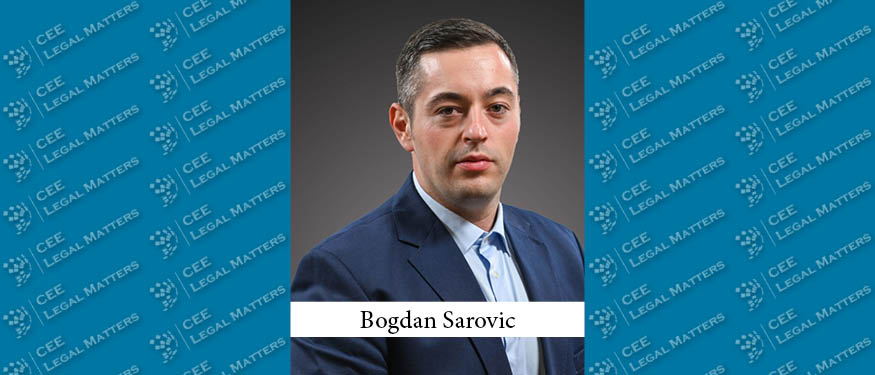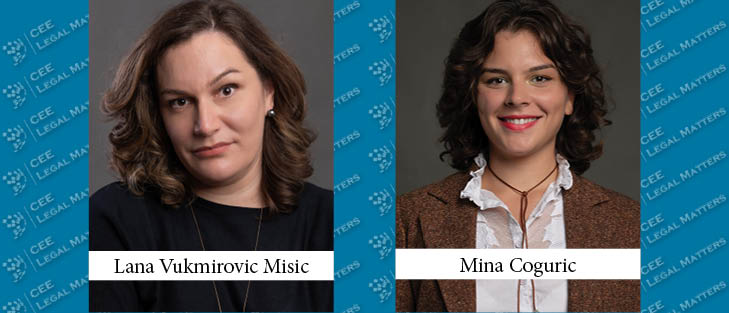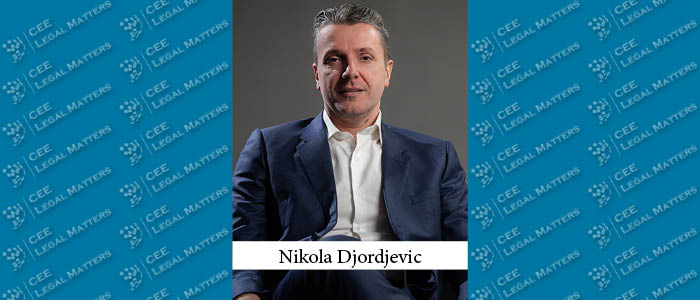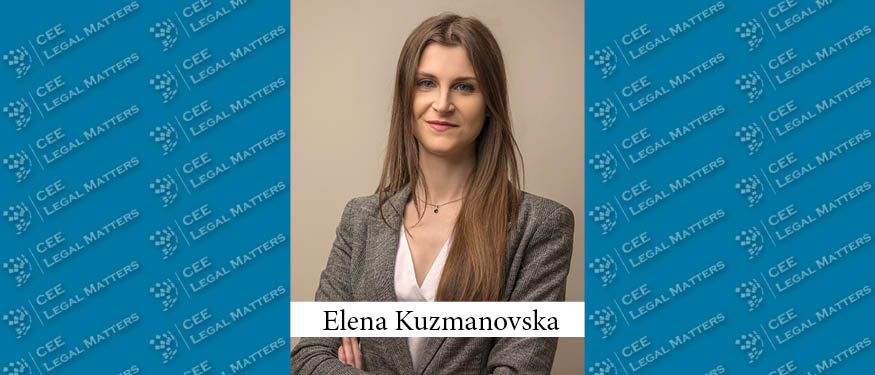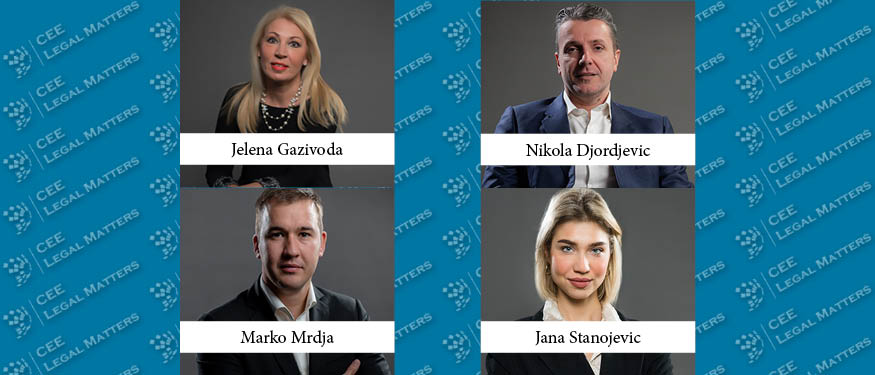On 17 January 2025, the Ministry of Labor, Employment, Veteran and Social Affairs of the Republic of Serbia rendered two new rulebooks in the field of occupational safety and health, the implementation of which begins on 28 April 2025, as follows:
Competition in Focus: Serbia’s Private Healthcare Sector Under Regulatory Spotlight
The Serbian Competition Commission ("Commission") has published a Report on the sector inquiry of competition conditions in the private healthcare services market in the Republic of Serbia for the period from 2019 up to 2023 ("Inquiry").
Fiduciary Transfers: Relic of the Past or Financial Necessity?
The word “fiduciary” originates from the Latin language and in translation means trust or pledge and dates back to Roman law and denotes a contract that is created when one party, the fiduciary (fiducians), hands over to another party a fiduciary (fiduciarius) something for ownership, and the fiduciary undertakes to return the same thing to the ownership of the fiduciary after the expiration of a certain term or the fulfillment of a certain condition. The fiduciary transfer of ownership rights i.e. fiduciary (“Fiduciary”) was introduced as a legal institute into the Montenegrin legal system through the Law on Fiduciary Transfer of Rights (“Official Gazette RCG No 23/96”) and after that, it continued to live under the Law on Property Relations (“Official Gazette CG No 19/09”).
Protecting Companies from Unintentional Engagement in Unfair Trade Practices
Unfair trade practices refer to deceptive, unethical, or manipulative actions carried out by businesses, that violate consumer protection laws and harm the consumers. These practices contradict professional conduct and significantly distort the economic interests and decision-making of the average consumer, often targeting vulnerable groups.
Sunny Prospects: Montenegro’s Real Estate and Hospitality Sectors on Solid Ground
Montenegro’s real estate and hospitality sectors have been gaining momentum, driven by the country’s natural beauty, strategic location, and an increasingly favorable investment environment. Keker, Bujkovic, Pejovic Partner Aleksandra Bujkovic, JPM Partners Senior Partner Lana Vukmirovic Misic, BDK Advokati Senior Partner Luka Popovic, and Vujacic Law Office Partner Sasa Vujacic discuss the country’s competitive advantages, challenges faced by investors, and the steps needed to further enhance its appeal to foreign capital.
Domicile of an Arbitral Award – What Does and What Does Not Influence It
The distinction between a domestic and a foreign arbitral award is important because it affects the recognition, enforcement, and legal remedies available under Serbian law. The domicile of the award is determined by the seat of arbitration and the law applied to the arbitral proceedings.
Montenegro: Regulation of Business Operations Related to Crypto Assets Through Amendments to the Law on Prevention of Money Laundering and Terrorist Financing
The Law on Amendments to the Law on Prevention of Money Laundering and Terrorist Financing ("Law") has been adopted, and a decree on its promulgation has been issued. The Law was published in the “Official Gazette of Montenegro” on 12th March 2025, and it enters into force on 20th March 2025.
Updated 2025 Arm's Length Interest Rates Published
The Ministry of Finance has adopted the Rulebook on interest rates considered to be in line with the "arm’s length" principle for 2025. The Rulebook was published in the Official Gazette on February 28 and will enter into force on March 8.
(Un)Equal Pay
The right to equal pay for the same work or work of equal value is one of the fundamental rights of employees, protected by both domestic legislation and international standards. In Montenegro, this right is regulated by the Labor Law, while judicial practice contributes to its interpretation and application. Furthermore, the case law of the Court of Justice of the European Union plays a significant role in shaping the legal framework, providing guidelines for the protection against discrimination in terms of wage equality.
Serbia Renewable Energy Auctions Surpass Expectations
At the end of 2024, the Ministry of Mining and Energy announced the second auction for wind and solar power plants. The deadline for applying for participation in the auctions is 05.02.2025. year. After consideration of all applications and bids, the entire capacity offered at the auctions for wind farms (300 MW) and for solar power plants (124.8 MW) was successfully allocated.
New Tariff Methodology for Natural Gas Transmission Adopted
Serbian Energy Regulatory Agency (AERS) has adopted the Tariff methodology for access to the natural gas transmission systems, which is now harmonized with the Commission Regulation (EU) 2017/460 of 16 March 2017 establishing a network code on harmonised transmission tariff structures for gas (NC TAR).
An Outlook on 2025: Energy in Serbia
JPM & Partners Senior Partner Jelena Gazivoda talks about energy in Serbia in 2025.
The Legal Uncertainty: Bankruptcy Proceedings and Arbitration in North Macedonia
In recent years, it has become increasingly common for companies in North Macedonia to choose arbitration as the method for resolving disputes in cooperation agreements, instead of judicial proceedings, which usually take considerably longer. However, the Macedonian legislature has not fully regulated all the legal aspects related to arbitration procedures.
Montenegro Advances EU Legal Harmonization with Draft Competition Laws
The Montenegrin Agency for the Protection of Competition ("Agency") has released draft version of the Law on Procedures for Compensation of Damages Resulting from Competition Violations ("Damage Law") and draft of the amendments and supplements to the Law on the Protection of Competition ("Competition Law"), whose aim is to align Montenegrin legislation with legislation of the European Union as part of Chapter 8 in the negotiations for Montenegro's accession to the European Union.
EU Artificial Intelligence Act and Its Impact on Non-EU Entities
Last year, a new regulation on artificial intelligence (“AI Act”) was published in the Official Journal of the European Union. This new AI Act lays down legal framework for the development, placing on the market, putting into service and use of artificial intelligence systems (“AI systems”) in the EU, in order to, inter alia, promote the uptake of human centric and trustworthy artificial intelligence, protect against harmful effects of AI systems and to support innovation.
(Re)Shaping Belgrade
Belgrade’s history is a testament to its resilience and adaptability. Over centuries, the city has been a crossroads of civilizations, with each era bringing new rulers, new ideas, and new architectural styles.
Impact of OFAC Sanctions on NIS AD Novi Sad and Options for their Removal
On 10 January 2025, the Office of Foreign Assets Control (“OFAC”) of the U.S. Department of Treasury’s issued a Determination pursuant to Section 1(a)(i) of Executive Order 14024 (“the EO 14024 Determination”) and a Determination pursuant to Section 1(a)(ii) of Executive Order 14071 (“the EO 14071 Determination”).
Montenegro: New Legal Framework in the Field of Construction and Spacial Planning
At the session held on December 19, 2024, the Government of Montenegro adopted the Bill of Law on Construction of Buildings and the Bill of Law on Spatial Planning. It was proposed that these laws should be adopted through an expedited procedure.




